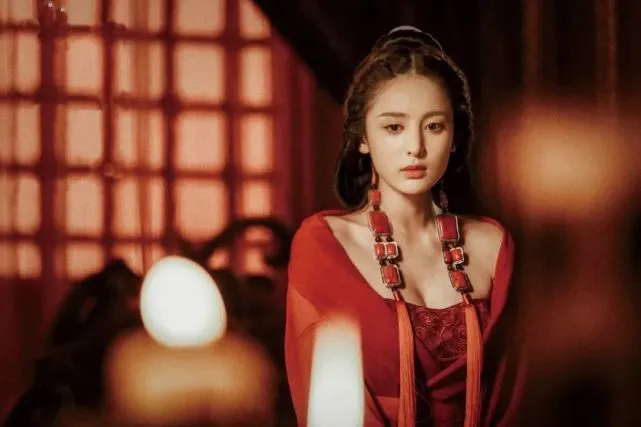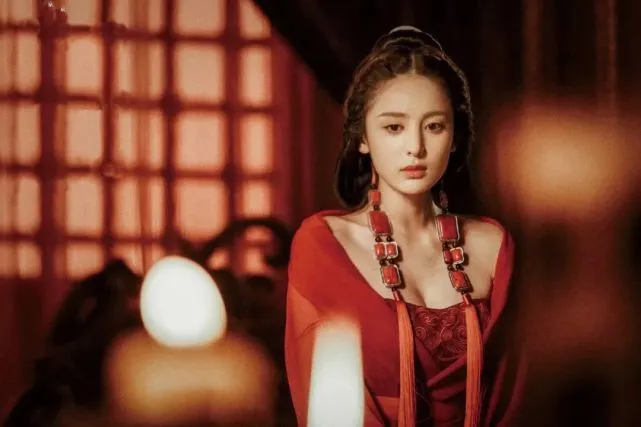The Gender Bias of Loyalty and Righteousness Discourse
In traditional cultural structures, "loyalty" is often presented as "loyal to the monarch," "loyal to the lord," and "loyal to the country," while "righteousness" emphasizes "sacrificing life for righteousness," "supporting the weak against the strong," and "sharing life and death." These values are predominantly narrated from a male perspective, with concepts such as loyal ministers, righteous heroes, righteous armies, and sworn brotherhoods almost entirely monopolized by a masculine context.
In contrast, women's loyalty and righteousness are often weakened to "virtuous wives and good mothers" or "chaste and loyal." For example, women who commit suicide for their husbands are called "heroic women," and those who remain widowed for life are praised as "chaste women." However, this type of loyalty and righteousness is more associated with individual emotions rather than national fate, lacking political and public significance. This gender bias makes it difficult for women, even in chaotic times, to be included in the mainstream narrative of "loyalty and righteousness," despite having firm beliefs and a spirit of sacrifice.
Moreover, traditional historical texts and literary creations are often male-dominated, with their aesthetics and value judgments built on patriarchal logic. If women's actions exceed the categories of "supporting the family" or "the inner palace," they are often interpreted as "interfering in politics" or "causing chaos," rather than embodying loyalty and righteousness. Therefore, even if women devote themselves to their country and stand up for righteousness, they can easily be overshadowed by the grand narratives of male heroes.
The Female Figures of Loyalty and Righteousness in the Three Kingdoms Narrative
Taking "Romance of the Three Kingdoms" as an example, as one of the most influential historical novels in China, it portrays countless loyal ministers and righteous heroes: Guan Yu "passes five passes and slays six generals" to release Cao Cao; Zhao Yun "rides alone to save the lord"; Zhuge Liang "dedicates himself wholeheartedly"; Liu Bei "visits the thatched cottage three times." These plots revolve around men, constructing a magnificent picture of loyalty and righteousness.
However, upon closer examination of female roles, one can still find the light of loyalty and righteousness. The most typical examples are Liu Bei's two wives—Lady Gan and Lady Mi. In the scene of fleeing at Changban Slope, Lady Gan comforts the people and assists Zhao Yun in escorting A Dou; while Lady Mi, when there is no way to retreat, resolutely jumps into a well to protect her baby. This act of safeguarding the monarch's bloodline, though not called "loyal ministers and righteous heroes," embodies the meaning of "protecting the lord" through their lives.
Similarly, Sun Shangxiang, when summoned back to Wu by Sun Quan, attempts to take Liu Shan back with her. Although her actions ultimately do not succeed, they reflect a firm stance of "loyalty to the husband's family," remaining steadfast even in the face of her brother's power. This adherence to the political identity of marriage should also be regarded as a female version of "loyalty and righteousness."
Additionally, figures like Wang Yi and Huang Cheng'er (Huang Yueying) not only assisted their husbands during chaotic times but also demonstrated sensitivity to the country's safety and political loyalty. Although they were not frontline soldiers, they practiced loyalty to their beliefs and identities through family, wisdom, emotions, and even their lives.

The Compressed Space for Expression
The reason why the female perspective on loyalty and righteousness struggles to become the core of mainstream narratives is not only due to a lack of documentation but also because its space for expression has been compressed within traditional discourse systems. In classical narratives, women's acts of loyalty and righteousness are often emotionalized, ethicalized, and familialized, leading to depoliticization and de-actionization.
For example, Lady Mi's act of jumping into the well, though heroic and moving, is often interpreted as "fulfilling a woman's duty" rather than "the righteousness of family and country"; Sun Shangxiang's actions are often romanticized as "deep maternal love" rather than a judgment and execution of political situations. Their actions are understood as "driven by emotions" rather than "value choices," thus depriving them of the space for political subjectivity.
Even for a talented woman like Huang Yueying, her intelligence is often overshadowed by the role of "virtuous helper" rather than a proper "military assistant." If she invents the wooden ox and flowing horse, it is seen as "assisting her husband"; if she suggests strategies for military campaigns, it is regarded as "the功 of a supportive wife." In this discourse suppression, even if women's acts of loyalty and righteousness exist, they struggle to escape the fate of being "labeled" and "instrumentalized."
Loyalty and Righteousness Beyond Blood and Marriage
The traditional understanding of women's loyalty and righteousness is often limited to "being faithful to one husband" and "not changing chastity," primarily reflecting dimensions of blood, marriage, and kinship. For example, a wife who remains widowed and does not remarry is seen as "loyal," and a mother who risks everything for her child is viewed as "righteous." But if we change our perspective—does female loyalty and righteousness exist beyond personal relationships?
The answer is affirmative. Historically, there have been women who transcended family boundaries, demonstrating loyalty to the country, ideals, and beliefs. For instance, Lü Zhi of the Western Han Dynasty, despite much controversy, exhibited political steadfastness in handling state affairs, which can be called "loyalty"; Qin Liangyu of the Ming Dynasty, as a female general, personally fought against the Later Jin, donning armor comparable to men; and in modern times, Qiu Jin, with her revolutionary spirit of "the country is paramount, the family is secondary," heroically sacrificed herself, becoming a model of modern female loyalty and righteousness.
These cases remind us that loyalty and righteousness are not values exclusive to men, nor can they only be manifested through military means. Women can also demonstrate their commitment to beliefs and dedication to righteousness through protecting the people, assisting in governance, strategizing for the country, and resisting enemies. This loyalty that transcends blood ties is precisely the part overlooked by traditional narratives.
The Contemporary Rewriting of Female Perspectives on Loyalty and Righteousness
In contemporary times, with the advancement of gender consciousness and narrative methods, the marginal position of women in loyalty and righteousness narratives has begun to be gradually rewritten. Cultural carriers such as film and television works, online literature, and game texts have endowed ancient female characters with more agency and critical thinking.
In the new version of the "Three Kingdoms" TV series, Sun Shangxiang is no longer just a victim of marriage but a "householder" with emotional judgment and political awareness; in games like "Honor of Kings," Diao Chan and Huang Yueying transform into resourceful and courageous fighters and inventors, with their loyalty and righteousness no longer limited to "being dependent on the male protagonist," but as independent female actors who think critically and make decisions on the historical stage.
Moreover, many newly adapted dramas and women's history books have begun to explore the "overlooked women" in historical gaps, reconstructing historical narratives to revalidate those acts of loyalty and righteousness that were previously downplayed, misinterpreted, or belittled. This cultural trend is not only a response to gender inequality but also an expansion of the traditional concept of loyalty and righteousness: loyalty and righteousness should no longer be delineated by gender but should be based on will, responsibility, and sacrifice.
The Contemporary Value of Female Perspectives on Loyalty and Righteousness
Reassessing the significance of female perspectives on loyalty and righteousness is not only a restoration of historical justice but also a reshaping of contemporary social values. In various aspects such as family ethics, professional spirit, social responsibility, and public service, the spirit of loyalty and righteousness remains a core value for building interpersonal trust and social stability. The resilience, responsibility, patience, and courage exhibited by women in this context are a unique expression of this spirit.
When we no longer define women by "weakness" or "subordination," but evaluate their actions based on "responsibility" and "belief," we will discover that those silent female figures in history were also guardians of ideals and practitioners of righteousness. They may not have wielded swords on horseback, but through their silent persistence and invisible actions, they have continued the bloodline of loyalty and righteousness in their respective lives.
Awakening female loyalty and righteousness from the shadow of political narratives is not to subvert tradition but to perfect it, allowing the cultural core of "loyalty and righteousness" to radiate new vitality in a broader narrative space. Female loyalty and righteousness should never be overlooked; it is simply waiting for us to reinterpret, retell, and rewrite it from a different perspective.
